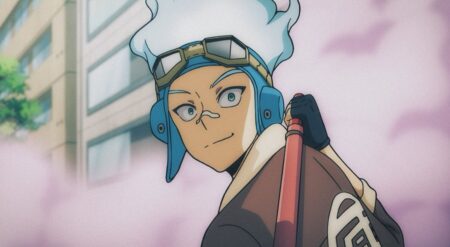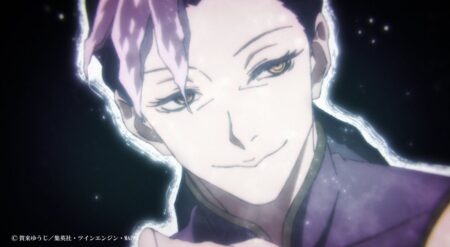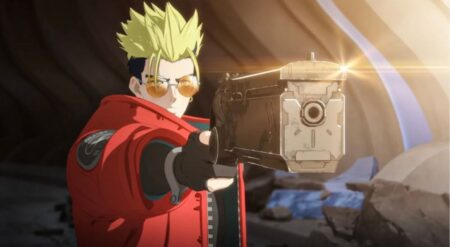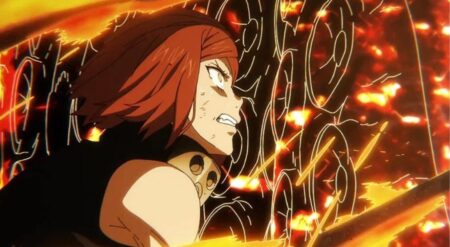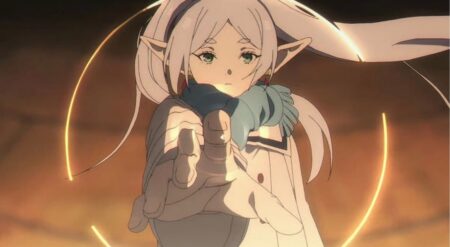
With a thoughtful cadence and charming, relatable characters, Insomniacs After School Season 1 created an under-the-radar gem. Buried in a season of tremendous debuts as well as the popularity of Oshi No Ko which was the other major series to premiere on HiDive during the spring, the series might not have earned the same level of attention but it’s still a worthwhile romance. Bogged down by a slow start that ambles in setting up the main story and establishing its characters, the series takes the first few episodes before it sinks its teeth in. With patience and warmth for its main characters, Nakami and Magari, Insomniacs After School weaves together a touching story of how the right people tend to come into our lives at just the moments they’re needed most.
Based on the manga written and illustrated by Makoto Ojiro, the anime adaptation is written by Rintarō Ikeda and directed by Yūki Ikeda. The series follows high school student Nakami who suffers from insomnia. One day as he tries to sneak a nap in his school’s abandoned observatory, he meets Magari who, like him, has trouble sleeping. Their shared struggles link them together and they form a friendship that transforms into more as their relationship veers into romance.
In the first few episodes, it feels as if the series is on a familiar hobby-centric route as we learn the ropes of night photography when Nakami is convinced to enter a national contest for astronomical photography. Instead of getting something like Blue Period, however, which makes a point to delve deep into the art itself, Insomniacs After School is more occupied by what having this new hobby means for Nakami as a person. The photography allows him to open himself up to others, Magari in particular, as he begins to view the world around him with new vigor despite his exhaustion, often defaulting to photos of Magari, her enthusiasm always drawing his lens towards her.
The club in general is more a backdrop than an active part of the series. Just as the two rest in the observatory during the day, the club is just an excuse for the story to continue to push the two together. Nakami and Magari are wonderfully written characters, their flaws and charms layered as we’re given greater insight into their limitations throughout the series. From Magari’s fear of being left behind and the melancholy that follows her due to a childhood heart condition, to Nakami’s fear of abandonment and a need for control due to his inability to control his sleeping, their characterization is one of the main reasons to watch the show. Similarly to Skip and Loafer, the series never forgets that they’re teenagers so they behave as such. Because of their adolescence, they’re both caught up in their hardships while also overcome with joy when it presents itself. They live moment to moment, whatever emotion they’re feeling — big and blustering.
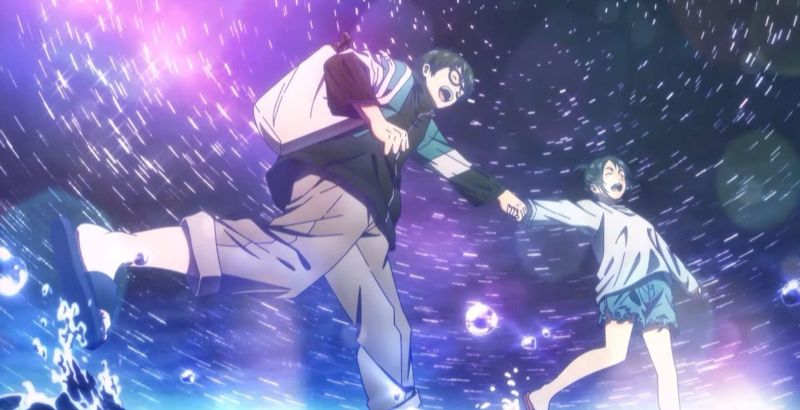
It’s part of why their romance works so well as they’re constantly thrown off by the other’s attention, so smitten with one another that they can’t at first fathom it’s reciprocated. By showing one another their vulnerable underbellies so soon into the series, their dynamic is locked as the heart of the series as they continue to grow alongside each other. It’s a shame that the attention they’re given couldn’t expand to the larger supporting cast.
The best slice-of-life and romance anime understand the crucial significance of a good ensemble. From the aforementioned Skip and Loafer to Kaguya-Sama: Love is War, or even the mid-2000s Toradora, there’s strength in ensembles, even if the main romance lies with the two protagonists. The supporting characters are chances for us to better understand our leads and Insomniacs After School Season 1 never quite manages to develop them well enough that we care about them beyond a given scene. The only exception is Shiromaru, who may have been given one of the best character introductions of any show this season.
While the series struggles with pacing and a greater character pool, Season 1 exceeds in the artistry. The landscapes and background animation have been uniformly strong throughout the season, and the character designs handled by Yuki Fukuda are distinctive. Whimsy and melancholy are depicted through the music, composed by Yuki Hayashi, whose experience runs the gamut of superb scores from Run with the Wind to My Hero Academia.
While the ending suggests that this might be a one-and-done series, Insomniacs After School Season 1 finds considerable strength in introspective character work that realizes that the demons they carry can’t be fixed overnight. Season 1 stumbles out of the gate and ultimately finds its footing with an empathetic story and lush visuals that capture the natural beauty of the outdoors and its healing nature. Nakami and Magari are the main pull of the series, but there’s plenty to champion, from the artistry to the strong, thoughtful writing.
Insomniacs After School Season 1 is available now on HiDive.
Insomniacs After School Season 1
-
Rating - 7.5/107.5/10
TL;DR
Insomniacs After School Season 1 finds considerable strength in introspective character work that realizes that the demons they carry can’t be fixed overnight. Season 1 stumbles out of the gate and ultimately finds its footing with an empathetic story and lush visuals that capture the natural beauty of the outdoors and its healing nature.


